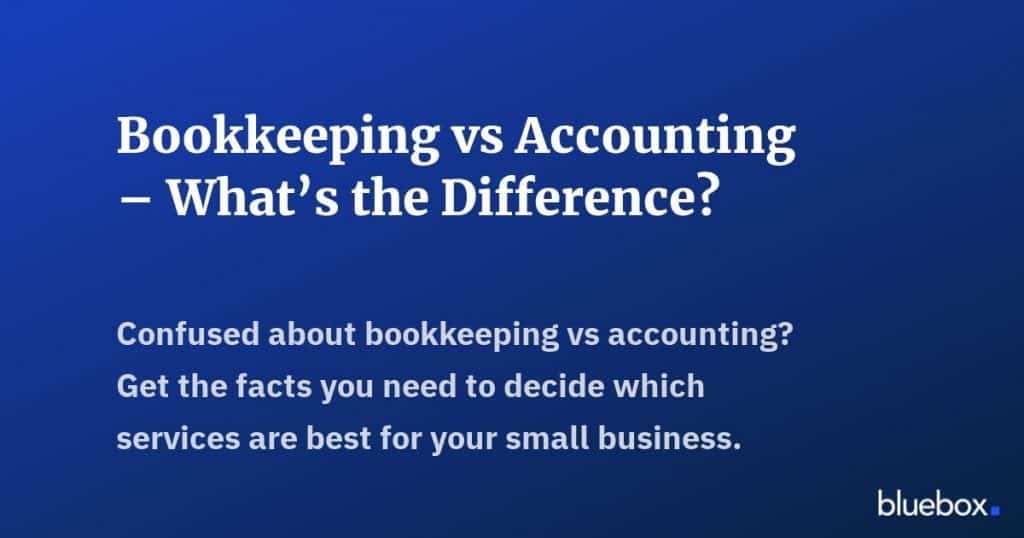Bookkeeping vs accounting can be a confusing topic for many business owners. Both are important financial processes for any business, but they each serve different purposes. Let’s take a look at what sets them apart and why both are essential to running a successful business.
What is Bookkeeping?
Bookkeeping is the process of recording all of your financial transactions on a daily basis. It includes tracking income, expenses and other transactions related to your business operations. The goal of bookkeeping is to have an accurate record of all financial activities that occur within your business over a given period of time, such as one month or one year. This allows you to have up-to-date information about your financial health, so you can make informed decisions about how to manage your finances going forward.
What is Accounting?
Accounting is the practice of analyzing and interpreting financial data in order to make better decisions for your business’s future. It involves using bookkeeping records to create reports that help you understand how much money you’re making or losing in various areas, such as sales, overhead costs, taxes and more. These reports can help you identify opportunities for improvement and plan strategies for growth. Accounting also involves preparing tax documents, creating budgets, conducting audits, and more—all with the goal of helping you maximize profits while minimizing losses.
Key Differences between Bookkeeping and Accounting
While bookkeeping and accounting are both important aspects of a business’s financial management, there are several key differences between the two:
- Focus: Bookkeeping is primarily concerned with recording financial transactions, while accounting focuses on interpreting and analyzing financial data.
- Scope: Bookkeeping is a narrower field than accounting, focusing only on the recording and tracking of financial data. Accounting is a broader field that includes bookkeeping but also includes financial analysis and decision-making.
- Skillset: Bookkeepers typically require less training and education than accountants. While bookkeeping does require specialized knowledge and skills, it is generally considered a less complex and specialized field than accounting.
- Responsibilities: Bookkeepers are responsible for recording financial transactions and producing financial reports. Accountants, on the other hand, are responsible for analyzing financial data, providing financial advice, and ensuring compliance with tax laws and regulations.
Bookkeeping vs Accounting Activities
Some activities that are carried out as a part of bookkeeping and accounting in a small business include:
Bookkeeping
- Recording income
- Tracking expenses and payments
- Reconciling bank accounts
- Entering financial transactions into an accounting system
- Generating financial statements, such as balance sheets and income statements
Accounting
- Preparing financial statements and reports
- Analyzing business performance
- Creating budgets for the future
- Generating tax documents
- Conducting financial audits
Bookkeeping vs Accounting: Which One Do You Need?
Now that we have a clear understanding of the differences between bookkeeping and accounting, let’s look at which one you need for your business.
Bookkeeping
If you’re a small business owner, bookkeeping is an essential part of managing your finances. By keeping accurate records of your financial transactions, you’ll be able to keep track of your income and expenses, and make informed decisions about your business. Bookkeeping is also important for tax purposes, as you’ll need to provide accurate records of your financial transactions to the tax authorities.
Accounting
If your business is growing and you need more comprehensive financial advice, you may need to hire an accountant. Accountants can help you to prepare financial statements, analyze your financial data, and provide advice on tax planning and financial management. They can also help you to comply with tax laws and regulations, and provide valuable insights into your business.
The Benefits of Professional Bookkeeping and Accounting
Although many small business owners can do their own bookkeeping with simple tools like spreadsheets or online banking apps, professional accounting services provide invaluable insights into how your business is doing financially that would be difficult to get without a deep understanding of financial analysis techniques. Professional accountants are also knowledgeable on tax laws which can save you time when filing taxes each year as well as protect you from costly errors in tax filings that could result in an audit or fines from the IRS. Finally, having access to experienced advice on cash flow management strategies can help ensure that your business stays profitable while growing at the same time.
Conclusion
We hope that by now, the bookkeeping vs accounting confusion is resolved. To recap, these are two distinct but interrelated processes that are essential for any business to succeed financially. Bookkeeping provides an accurate record of all financial activities over a given period of time while accounting uses this data to analyze trends and prepare valuable reports that can help you make informed decisions about managing your finances going forward.
Whether it’s managing current cash flow or planning long-term strategies for growth, having both bookkeeping and accounting services on hand will help ensure the success of your small business or startup venture! Talk to us today to discuss how we can assist you.

